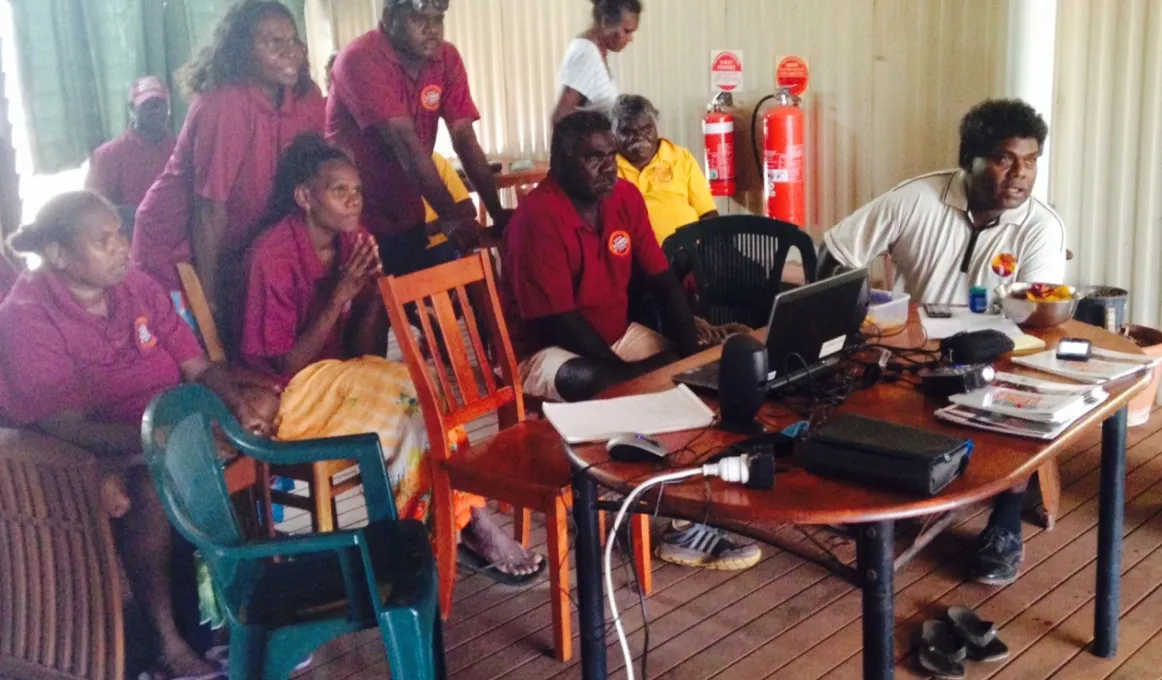Western technology and Yolngu culture combine to improve school attendance

School attendance teams in remote Arnhem Land are getting innovative about improving school attendance by using a mix of western technology and Yolngu language, kinship and culture to share ideas about getting kids to school.
School attendance teams in remote Arnhem Land are getting innovative about improving school attendance by using a mix of western technology and Yolngu language, kinship and culture to share ideas about getting kids to school.
Following the rollout of the Australian Government’s Remote School Attendance Strategy (RSAS), local community members were recruited as school attendance supervisors and officers. This has allowed each community to develop their own plan to tackle truancy, but with communities hundreds of kilometres apart and English a second language for many, it has been difficult for school attendance teams to learn about successful strategies used elsewhere.
So, when school attendance teams from the northeast Arnhem Land communities of Ramingining and Galiwin’ku met, they decided to use videoconferencing as a way to keep in touch and discuss common issues, develop regional strategies and share experiences and innovations about getting kids to school.
The videoconferences are in Yolngu Matha language, which allow the attendance teams to easily express Yolngu culture and kinship ties and how they can be used to increase school attendance.
The videoconferences, facilitated by Government and Indigenous Engagement Officers, have since expanded to include teams from the communities of Milingimbi and Gapuwiyak, with teams from Yirrkala to join soon.
Albert Waninymarr, a school attendance supervisor from Ramingining, quickly recognised the value of the videoconferences.
“We get new ideas on how we can work,” Albert said.
“We’re learning from each other to educate community members on how important school is for the children, their futures and the future of the community.”
These shared ideas will be incorporated into next year’s RSAS planning sessions.
The school attendance teams continue to refine the meetings and look for ways to help each other, including keeping each other updated on student movements between communities due to funerals and ceremonies.
Peter Buwanba, a school attendance officer from Ramingining, thought that the best outcome of the videoconferences has been to create a feeling of common cause, that as a group they are creating a supportive regional network tied by Yolngu language, kinship and culture.
“People in other communities are having some of the same challenges that we are. It is good to be able to talk about these things in language and work together to help come up with answers,” Peter said.
Find out more
A good education is essential for a good future and that starts with making sure children and young people go to school every day.
Getting children to school, improving education outcomes and supporting families to give their children the best start in life is a major priority for the Australian Government. More information about the strategy can be found at Remote School Attendance Strategy.
The National Employment Services Australia’s RSAS Training Strategy website supports school attendance teams to fulfil their roles through developing their skills and knowledge. The online training program will include a mixture of interactive and engaging online learning options that the attendance officers can undertake at their own pace.